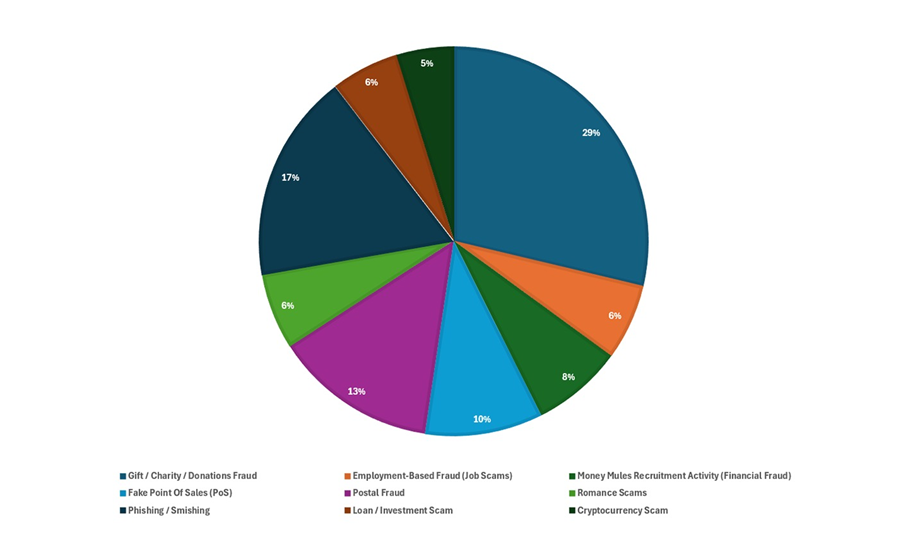Teacher
Professional
- Messages
- 2,669
- Reaction score
- 819
- Points
- 113
Scammers used new methods of deception in the East, earning $100 million.
During Ramadan, Resecurity recorded a significant increase in the number of fraudulent activities and scams, coinciding with an increase in retail and online transactions.
Cybercriminals are particularly active in the Middle East, especially in the Kingdom of Saudi Arabia, where consumer spending has reached more than $16 billion. and they became a tasty morsel for scammers. The estimated damage caused by the fraudsters ' activities ranges between $70 and $100 million, affecting both local residents and foreign visitors.
Cybercriminals are using increasingly sophisticated methods of deception, bypassing standard security measures. Resecurity pays special attention to the so-called Smishing Triad-methods previously used in the United States, the United Kingdom, the EU and the United Arab Emirates, now spreading to the Middle East.
Among the most frequent types of fraud are scams related to gifts and donations, employment fraud, recruitment of "money mules", falsification of service points and logistics services, as well as romantic scams, phishing, and others.

Statistics of fraudulent schemes
Fraudsters are particularly active in using false notifications on behalf of well-known logistics companies such as Aramex, SMSA Express and Zajil Express, claiming that delivery of a parcel is delayed due to unpaid fees. This confirms that attackers have access to victims personal data through leaks and actively trade the obtained information on the darknet.
Resecurity also identified fraudulent campaigns linked to phishing sites of bill and tax payment platforms (SADAD) and recruitment platforms (MUSANED), created to intercept payment data and personal information, used to recruit victims as "money mules" or for further scams.
It is noted that more than 320 fraudulent websites and platforms imitating key logistics suppliers and electronic public services were blocked. Consumers are strongly advised not to share personal and payment information on questionable sites and report any suspicious resources to law enforcement agencies.
During Ramadan, Resecurity recorded a significant increase in the number of fraudulent activities and scams, coinciding with an increase in retail and online transactions.
Cybercriminals are particularly active in the Middle East, especially in the Kingdom of Saudi Arabia, where consumer spending has reached more than $16 billion. and they became a tasty morsel for scammers. The estimated damage caused by the fraudsters ' activities ranges between $70 and $100 million, affecting both local residents and foreign visitors.
Cybercriminals are using increasingly sophisticated methods of deception, bypassing standard security measures. Resecurity pays special attention to the so-called Smishing Triad-methods previously used in the United States, the United Kingdom, the EU and the United Arab Emirates, now spreading to the Middle East.
Among the most frequent types of fraud are scams related to gifts and donations, employment fraud, recruitment of "money mules", falsification of service points and logistics services, as well as romantic scams, phishing, and others.

Statistics of fraudulent schemes
Fraudsters are particularly active in using false notifications on behalf of well-known logistics companies such as Aramex, SMSA Express and Zajil Express, claiming that delivery of a parcel is delayed due to unpaid fees. This confirms that attackers have access to victims personal data through leaks and actively trade the obtained information on the darknet.
Resecurity also identified fraudulent campaigns linked to phishing sites of bill and tax payment platforms (SADAD) and recruitment platforms (MUSANED), created to intercept payment data and personal information, used to recruit victims as "money mules" or for further scams.
It is noted that more than 320 fraudulent websites and platforms imitating key logistics suppliers and electronic public services were blocked. Consumers are strongly advised not to share personal and payment information on questionable sites and report any suspicious resources to law enforcement agencies.

